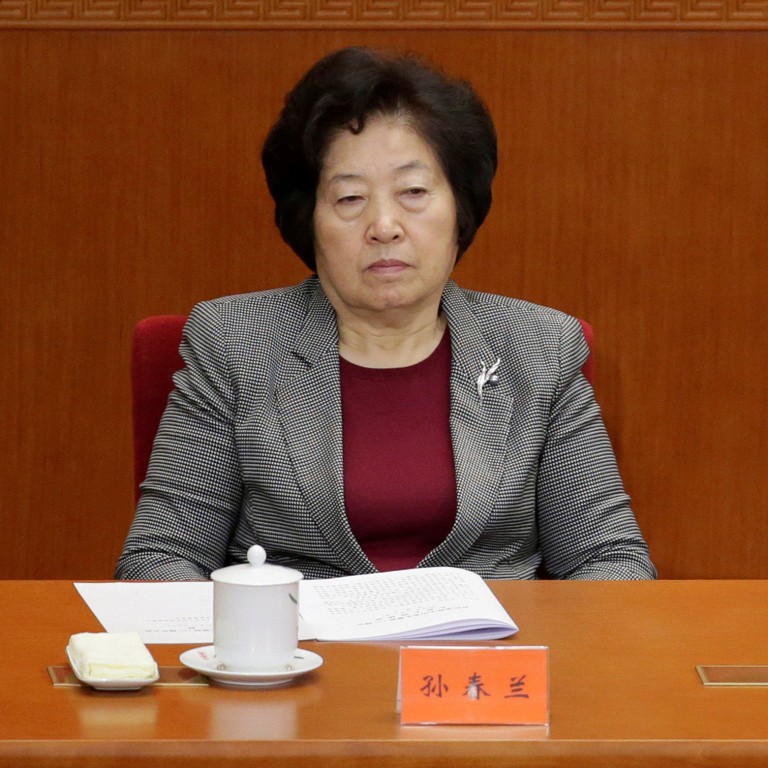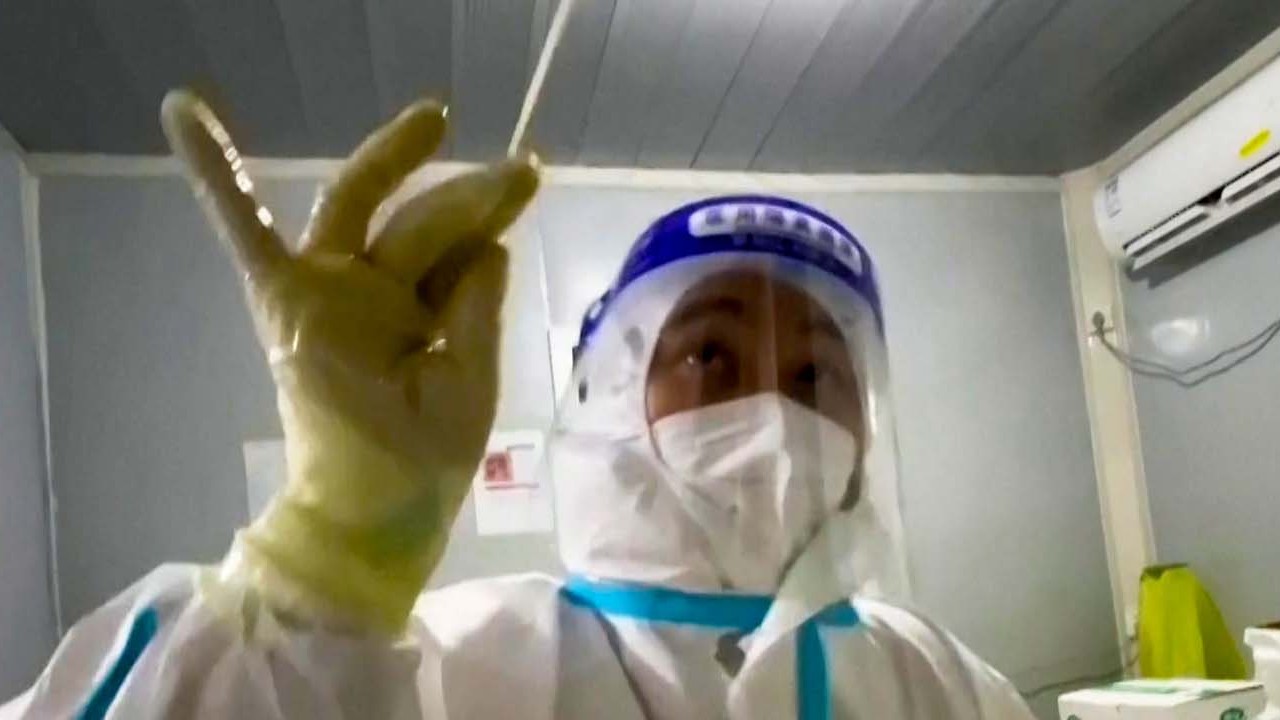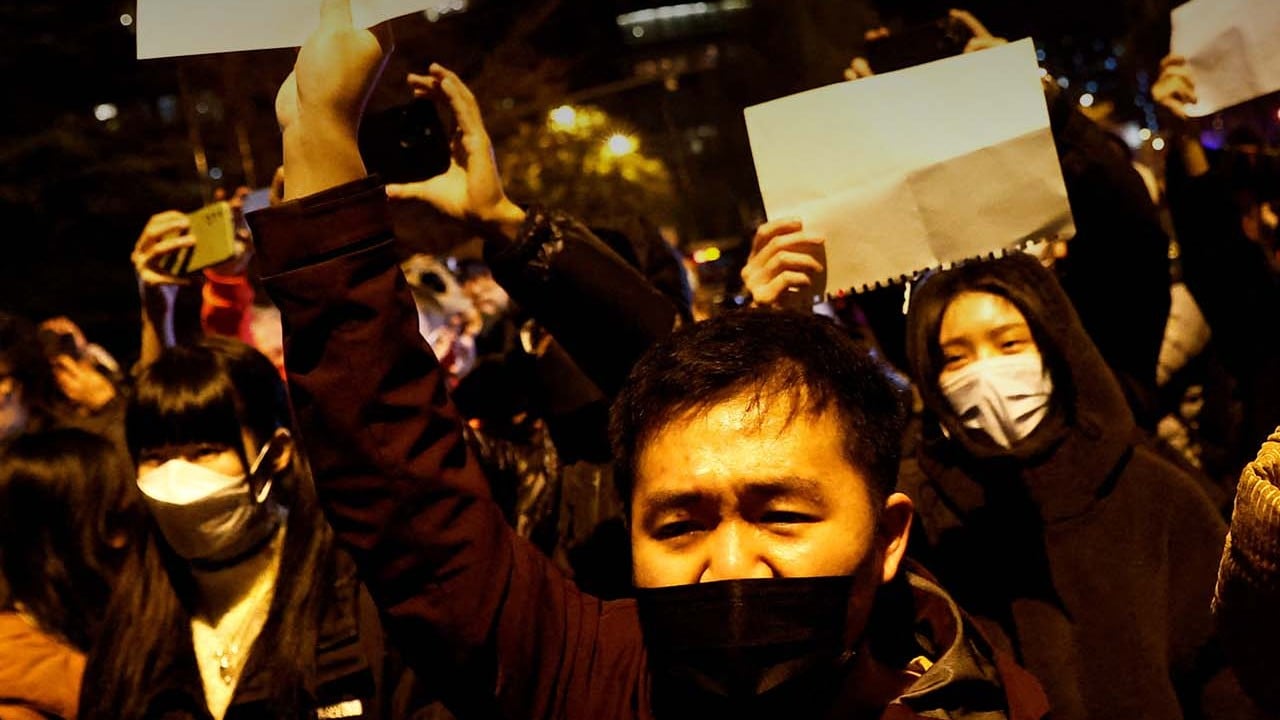
China’s top Covid-19 official Sun Chunlan signals new phase of controls
- Vice-premier in charge of Covid-19 controls tells health experts that small, progressive refinements in approach will continue
- Sun also acknowledges the changing nature of the virus as the country faces ‘a new situation’
Sun said the country is “facing a new situation and new tasks as the pathogenicity of the Omicron virus diminishes, vaccination becomes more widespread and experience [grows] in prevention and controls”.
It is the first time a senior official has acknowledged the change in the nature of the virus without the usual caveat that Omicron could still lead to more deaths in China because of its large population – an argument that has previously been used to justify the country’s strong Covid-19 controls.
There was also no mention in the Xinhua report of “dynamic zero” – the general strategy to eliminate every chain of transmission through frequent testing, quarantine and lockdowns, despite their disruptions to life and the economy.
Instead, Sun was quoted as saying that the “optimisation” of Covid-19 control rules would continue. “With the people at the centre, prevention and control work must steadily progress, policies continue to be optimised in small steps but without stopping,” she said.
“Measures for diagnosis, testing, admission and isolation must be constantly improved, immunisation of the whole population, especially the elderly, be strengthened, and the preparation of therapeutic drugs and medical resources accelerated.”
China is battling its worst Covid-19 outbreak of the past three years, with reported local infections exceeding 30,000 over consecutive days.
Some major cities, such as Guangzhou in the south and Zhengzhou in central China, have reported an unprecedented number of cases. The capital Beijing is the latest, with its daily local infections reaching a record high of more than 5,000.
Sun’s emphasis on incremental adjustments to controls is the latest sign that China’s leadership is preparing to step back from its zero-Covid response, after the pandemic control playbook was replaced earlier this month with a more relaxed approach known as the “20 measures”.
In a meeting with eight frontline workers on Thursday, Sun said tiered diagnosis and treatment must be strengthened at the community level to ensure the effectiveness of the new measures.
Earlier this week, China announced a vaccination campaign focused on getting the elderly – especially those aged over 80 – inoculated. The move is widely seen as an indication that Beijing is finally ready to tackle a major hurdle to a safe reopening.
Beijing vows crackdown on ‘hostile forces’, stops short of mentioning protests
The national health commission has also instructed local authorities to build more hospitals that can treat patients with the virus at different degrees of severity, including those who need intensive care.
At the grass-roots level, local governments are gradually relaxing controls in the name of abiding by the 20 measures.
Guangzhou in Guangdong province relaxed restrictions and lifted lockdowns over districts which have been in place from days to more than a month. The city’s health authority went a step further – allowing close contacts to isolate at home instead of spending five days in a quarantine facility. Some shopping malls also announced on Thursday that they would stop checking test results.
Other cities, including Beijing and Shijiazhuang, in the northern province of Hebei, explicitly asked residents who do not have regular social interactions – such as students learning online at home – to skip the required regular PCR tests. In effect, the move is a step back from mass testing.
Some communities in Beijing also started to allow people with particular needs, such as the elderly and pregnant women, to isolate at home after becoming infected.
Some residents of the capital have also said that they knew of incidents where neighbours who had tested positive – and who, in theory, should have been transfered to a quarantine facility within 24 hours – had instead been able to isolate at home.
But other cities appear to be sticking to a tougher approach. Jinzhou in the northeastern province of Liaoning, which has been battling an outbreak that started 10 days ago, has told residents that it will not lift controls “as a specific city did”.
It added that the authorities believe the outbreak will be fully under control by next Monday.
“Regardless of whether the virulence of the coronavirus has diminished, the rate of serious illness and mortality and the chances of long Covid, it is after all a viral infection, and it is better not to have it than to have it,” a letter to residents said.
“There is no need for us to lower our defences when we can achieve zero-Covid or without creating a widespread infection.”
China has launched a new Covid vaccination drive, but there’s no mandate
Sun’s remarks followed the eruption of rare protests against the stringent measures in major cities and on university campuses, including the prestigious Peking and Tsinghua Universities in the capital.
On Sunday night, hundreds of residents chanted slogans such as “no more PCR testing” and “no more health code” as they marched in downtown Beijing.
There were similar protests in Shanghai, Wuhan, Hangzhou and Chengdu, triggered by a fatal fire in Urumqi, the capital of Xinjiang. Covid-19 lockdown measures were widely blamed for the deaths, with grief turning to anger over the country’s strict controls.



